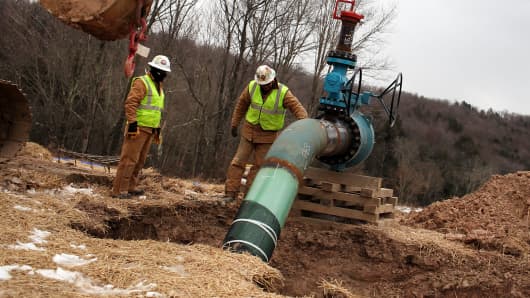California, historically a major force in alternative energy, is also home to one of the best-kept secrets of the U.S. fossil fuel renaissance—the Monterey shale, a formation that houses the country's largest supply of proven reserves.
The word "prolific" is often used to describe Monterey's shale bounty, which according to Energy Information Agency estimates holds at least three times the reserves contained within the Bakken and Eagle Ford formations—currently two of the hottest regions in the U.S. shale boom.
Yet despite sitting atop what the U.S. Geological Survey estimates is about 15 billion barrels of oil, the Golden State has yet to tap Monterey with the same fervor that North Dakota has developed Bakken, or in the way Pennsylvania is moving rapidly to explore the Marcellus shale.
A patchwork of byzantine regulations, environmental concerns and geological factors have stunted development of a region in the heart of the state's San Joaquin Valley that is ripe for exploration.
(Read More: Marcellus Turns Pennsylvania Into 'Saudi Arabia' of Natgas)





